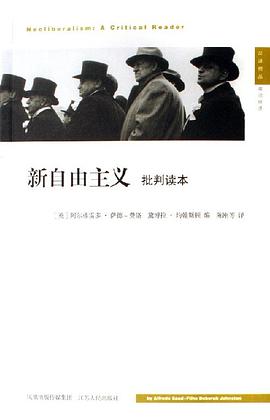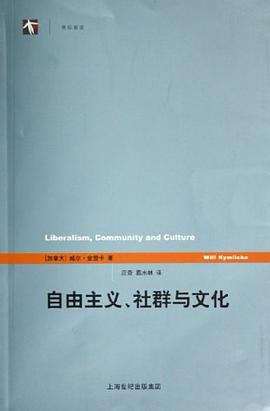

具体描述
Friedrich August Hayek CH (German pronunciation: [ˈfʁiːdʁɪç ˈaʊ̯ɡʊst ˈhaɪ̯ɛk]) (8 May 1899 – 23 March 1992), born in Austria-Hungary as Friedrich August von Hayek, was an economist and philosopher best known for his defense of classical liberalism and free-market capitalism against socialist and collectivist thought. In 1974, Hayek shared the Nobel Prize in Economics for his "pioneering work in the theory of money and economic fluctuations and... penetrating analysis of the interdependence of economic, social and institutional phenomena."
Hayek is considered to be one of the most important economists and political philosophers of the twentieth century.Along with his mentor Ludwig von Mises, he was an important contributor to the Austrian school of economic thought. Hayek's account of how changing prices communicate information which enable individuals to coordinate their plans is widely regarded as an important achievement in economics.He also contributed to the fields of systems thinking, jurisprudence, neuroscience and the history of ideas.
Hayek served in World War I and said that his experience in the war and his desire to help avoid the mistakes that had led to the war (see below) led him to his career. Hayek lived in Austria, Great Britain, the United States and Germany, and became a British subject in 1938. He spent most of his academic life at the London School of Economics (LSE), the University of Chicago, and the University of Freiburg.
In 1984, he was appointed as a member of the Order of the Companions of Honour by Queen Elizabeth II on the advice of Prime Minister Margaret Thatcher for his "services to the study of economics." He also received the US Presidential Medal of Freedom in 1991 from president George H. W. Bush. In 2011, his article The Use of Knowledge in Society was selected as one of the top 20 articles published in the American Economic Review during its first 100 years.
Bruce J. Caldwell is a historian of economics, Research Professor of Economics at Duke University, and Director of the Center for the History of Political Economy
An unimpeachable classic work in political philosophy, intellectual and cultural history, and economics, The Road to Serfdom has inspired and infuriated politicians, scholars, and general readers for half a century. Originally published in 1944—when Eleanor Roosevelt supported the efforts of Stalin, and Albert Einstein subscribed lock, stock, and barrel to the socialist program— The Road to Serfdom was seen as heretical for its passionate warning against the dangers of state control over the means of production. For F. A. Hayek, the collectivist idea of empowering government with increasing economic control would lead not to a utopia but to the horrors of Nazi Germany and Fascist Italy.
First published by the University of Chicago Press on September 18, 1944, The Road to Serfdom garnered immediate, widespread attention. The first printing of 2,000 copies was exhausted instantly, and within six months more than 30,000 books were sold. In April 1945, Reader’s Digest published a condensed version of the book, and soon thereafter the Book-of-the-Month Club distributed thisedition to more than 600,000 readers. A perennial best seller, the book has sold 400,000 copies in the United States alone and has been translated into more than twenty languages, along the way becoming one of the most important and influential books of the century.
With this new edition, The Road to Serfdom takes its place in the series TheCollected Works of F. A. Hayek. The volume includes a foreword byseries editor and leading Hayek scholar Bruce Caldwell explaining the book's origins and publishinghistory and assessing common misinterpretations ofHayek's thought. Caldwell has also standardized and correctedHayek's references and added helpful new explanatory notes. Supplemented with an appendix of related materials ranging from prepublication reports on the initial manuscriptto forewords to earlier editions by John Chamberlain, Milton Friedman, and Hayek himself, this new edition of The Road to Serfdom will be the definitive version of Friedrich Hayek's enduring masterwork.
用户评价
##当年逐字逐句翻译的??
评分 评分##好的翻译不是知识的掌握而已,它是一种高深的技巧,只有经过不断的打磨才能获得。这句话果然是颠扑不破的真理。而更多时候,优秀的译家需要耐得住寂寞,因为翻译毕竟是件吃力不讨好的事情。然而,社科版的翻译是绝对拙劣和没有学术良心.让人愤慨! 哈耶克的著作基本上...
评分##不可否认哈耶克是个强硬的反社会主义者,其著作最主要的观点就是指出了社会主义与纳粹主义有着相同的哲学根源——集体主义,进而进一步论证社会主义必然走向极权和专制。作为一个在社会主义国家生活多年并接受教育的人,初读此书时我虽感醍醐灌顶但仍不敢苟同其把社会主义与纳...
评分 评分##写得真好,看得真累,,
评分 评分##与他的前辈如亚当•斯密、大卫•休谟、爱德蒙•柏克等人不同的是,哈耶克出现在自由主义遭受最严重的考验和摧残的历史阶段,他必须要同这些现实作战,而不是仅仅为社会提供一套自由主义理论。在《通往奴役之路》(The road to serfdom)出版的1944年,二次大战前年轻的苏...
评分相关图书
本站所有内容均为互联网搜索引擎提供的公开搜索信息,本站不存储任何数据与内容,任何内容与数据均与本站无关,如有需要请联系相关搜索引擎包括但不限于百度,google,bing,sogou 等
© 2025 book.tinynews.org All Rights Reserved. 静思书屋 版权所有




















